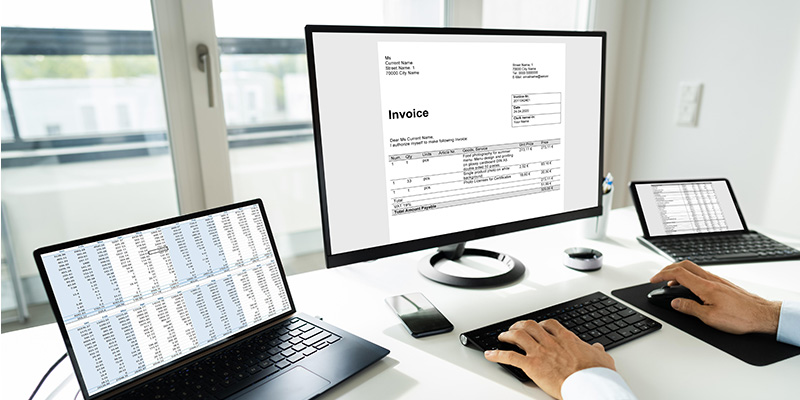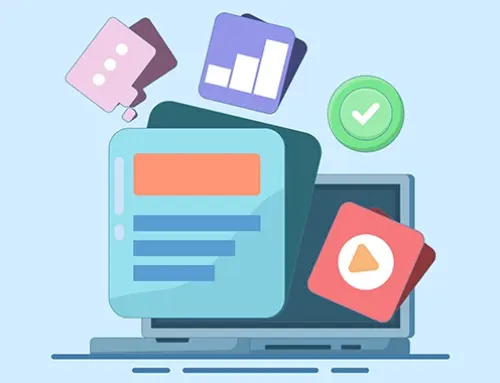Contents
Top Legal Billing Software Tools for Small Law Firms
Effective billing is critical for small law firms who want to stay profitable and serve the clients’ interests. Lawyer billing software provides an effective method of capturing time, generating invoices, and making payments precisely. With the best lawyer billing software, administrative work can be minimized and overall cash flow enhanced. Firms employing outdated tools always face problems erased by newer legal billing software. This article covers what small firms need to know in order to evaluate and utilize billing technology effectively.
What Small Firms Must Know About Legal Billing
I. How Legal Billing Works in Practice
Legal billing refers to the process of tracking time spent on client matters, applying appropriate billing rates, and generating invoices in line with firm policies or client agreements. This includes documenting hours worked, expenses incurred, and billing terms outlined in retainer agreements. The process may also require itemizing services in a format clients can understand, often under strict deadlines. Legal billing software helps organize these elements and ensures consistency across all transactions.
II. Challenges Small Firms Face Without Structure
Without standardized systems, small law firms often struggle with delayed invoicing, inaccurate time tracking, and inconsistent recordkeeping. These issues result in lost revenue and client dissatisfaction. Relying on manual processes or spreadsheets increases the risk of human error. In contrast, lawyer billing software minimizes these risks by automating common tasks, which helps maintain accurate billing practices.
III. When to Upgrade From Manual Systems
Small firms should consider upgrading from manual processes when billing inconsistencies begin to affect profitability or client relationships. Missed billable hours, delayed collections, or difficulty in tracking retainers are common signs. Legal billing systems allow firms to gain full visibility into their billing operations, streamline workflows, and ensure that no revenue is lost due to administrative inefficiencies. Upgrading to a digital system also positions firms for scalability as their client base grows.

Why Legal Billing Software Matters for Small Practices
I. Capturing Every Billable Hour
Accurate time tracking is critical to maximizing revenue in small legal practices. Missed or forgotten time entries can lead to significant revenue loss over time. Legal billing software like RunSensible enables real-time tracking, reminders, and mobile entry options to ensure that every billable activity is recorded promptly. This level of accuracy enhances financial stability and client trust.
II. Reducing Administrative Workload
Manual billing processes require significant time and attention to detail, often diverting staff from more valuable legal tasks. Lawyer billing software reduces this burden by automating invoice creation, recurring billing, and time entry approvals. By cutting down on repetitive administrative tasks, attorneys and support staff can focus more on client service and case strategy.
III. Improving Revenue Collection and Cash Flow
Delayed or unclear billing can result in overdue payments and client confusion. Legal billing systems improve cash flow by issuing consistent invoices, sending automatic reminders, and offering integrated payment options. These systems provide insights into aging reports and payment statuses, helping firms take timely action to recover outstanding balances and maintain financial health.
Features That Define the Best Lawyer Billing Software
I. Time Tracking With Multiple Rate Support
Effective billing starts with accurate time entry. Legal billing software should allow attorneys to log time based on task, case, or client, with the flexibility to apply different billing rates. This includes support for flat fees, contingency billing, and hourly rates across various matter types. Built-in timers and mobile access further enhance accuracy and ease of use.
II. Automated Invoice Generation
Manual invoice creation is prone to errors and inefficiencies. Lawyer billing software provides automated invoicing capabilities, allowing firms to generate detailed, branded invoices that comply with client requirements. Features such as batch billing, custom templates, and pre-set approval workflows help streamline the entire billing process, saving time and reducing mistakes.
III. Integration With Payment Gateways
Efficient payment collection is essential for financial stability. Legal billing systems often integrate with online payment solutions to support credit card, ACH, and other digital transactions. These integrations reduce delays in payment processing and provide a better client experience. Firms can also monitor transactions in real time and maintain accurate financial records across billing cycles.
How Legal Billing Systems Support Compliance
I. Ensuring Billing Transparency
Transparency is essential in maintaining strong client relationships and meeting ethical standards. Legal billing systems help ensure that all charges are clearly itemized and supported by detailed records. Clients can review the work performed, hours spent, and the basis for each fee, reducing the likelihood of disputes. Transparent billing also demonstrates the firm’s commitment to professionalism and accountability.
II. Avoiding Overbilling or Ethical Issues
Overbilling, whether intentional or accidental, can lead to disciplinary action or loss of client trust. Legal billing software includes safeguards such as time entry validation, rate limits, and pre-bill reviews to prevent such issues. By enforcing internal rules and audit trails, these platforms promote ethical billing behavior and help firms adhere to industry standards.
III. Tracking Client Guidelines and Documentation
Many clients, especially corporate ones, have strict billing guidelines. Lawyer billing software allows firms to set rules and workflows that align with each client’s specific requirements. This includes formatting standards, billing thresholds, and documentation protocols. Following these guidelines precisely ensures compliance, improves client satisfaction, and reduces the risk of invoice rejections.
Choosing the Right Legal Billing Software for Your Firm
I. User Interface and Learning Curve
Ease of use is a critical factor when selecting billing tools. Legal billing software should offer a clean, intuitive interface that minimizes the time required for training and daily use. A short learning curve enables legal professionals to adapt quickly and reduces disruptions in billing operations. User-friendly platforms also promote consistent usage, leading to more accurate billing records.
II. Scalability and Firm Size Alignment
Small firms need tools that can grow with their business. Lawyer billing software should be scalable, offering features that support solo practitioners while accommodating expansion into multi-user environments. It must handle an increasing number of clients, matters, and users without compromising performance or data integrity. Flexible licensing and modular add-ons further enhance adaptability.
III. Support, Security, and Data Backup
Reliable customer support is essential for resolving issues promptly. Legal billing systems should include access to technical assistance, documentation, and training resources. Additionally, strong security features, such as encryption and user access controls, protect sensitive financial and client information. Regular data backups ensure business continuity and prevent data loss in the event of system failure.
Practical Tips to Maximize Lawyer Billing Software
I. Setting Billing Rules and Time Entry Habits
Establishing clear billing policies ensures consistency across the firm. Legal billing software allows users to define standard billing intervals, approval workflows, and rounding rules. Attorneys should develop strong habits for logging time immediately after tasks are completed to maintain accuracy. Consistent data entry supports reliable financial reporting and client communication.
II. Training Your Staff and Standardizing Workflows
Proper training is necessary to achieve full adoption and utilization of billing tools. Lawyer billing software should be introduced with structured onboarding sessions and reference materials. Standardizing workflows for time tracking, invoice review, and payment collection helps align staff behavior with firm expectations. This improves efficiency and minimizes errors.
III. Reviewing Reports to Spot Billing Gaps
Regular review of financial and productivity reports helps identify missed hours, delayed invoicing, or underperforming matters. Legal billing systems provide dashboards and analytics tools that offer visibility into key metrics. By analyzing these reports, firms can adjust billing practices, optimize resources, and improve cash flow. Consistent monitoring also supports strategic planning and business growth.
Mistakes to Avoid When Using Legal Billing Systems
I. Delayed Time Entries and Missed Hours
Failing to record billable time immediately can lead to revenue loss and inaccurate client invoices. Legal billing systems help prevent this by offering real-time tracking tools and automated reminders. However, without consistent use, even the best system cannot compensate for poor timekeeping practices. Firms should emphasize daily time entry and regular system use to maximize accuracy.
II. Unclear Invoice Language or Layout
Invoices that lack clarity may cause client confusion and delay payments. Legal billing software should support detailed, well-structured invoices that clearly outline services provided, rates applied, and payment terms. Customizable templates allow firms to present their billing information in a professional, easy-to-understand format. Transparency in invoicing enhances client trust and accelerates collections.
III. Not Updating Billing Rates or Rules Regularly
Outdated billing rates or misaligned policies can affect profitability and client satisfaction. Lawyer billing software must be reviewed periodically to ensure that rates reflect current agreements and firm standards. Adjustments should be made based on changes in legal services, cost structures, or client contracts. Regular updates maintain the accuracy of billing practices and protect the firm’s financial health.
Smarter Billing, Stronger Practice: Optimize Your Legal Tools
Small law firms must operate with precision, especially when managing time and revenue. Legal billing software offers an essential foundation for accurate time tracking, automated invoicing, and improved payment processes. By leveraging the right tools, firms can reduce administrative burdens, enhance billing transparency, and ensure ethical practices. A reliable system also helps maintain compliance and client satisfaction through consistent, detailed reporting.
Investing in lawyer billing software is not just about streamlining operations—it’s about sustaining long-term financial health and professional integrity. When legal billing systems are properly implemented and maintained, firms gain the clarity and control they need to focus more on legal outcomes and less on operational inefficiencies. These advantages can translate into stronger client relationships and a more resilient business model.
Take Control of Your Time and Revenue with RunSensible
RunSensible delivers everything small firms need in legal billing software—accurate time tracking, customizable invoices, and automated payment reminders all in one platform. With built-in lawyer billing software features like real-time timers, LEDES-compliant billing, and recurring invoice options, you can streamline every stage of your billing process.
Our legal billing systems also include secure client portals for invoice access, seamless integration with online payment tools, and advanced reporting to track billable hours and revenue trends. Simplify your operations and boost cash flow with RunSensible—your complete billing and practice management solution.
FAQs
1. What is legal billing software and how does it help small law firms?
Legal billing software is a digital tool designed to track time, generate invoices, and manage payments. It helps small law firms improve accuracy, reduce administrative workload, and increase revenue collection efficiency.
2. How does lawyer billing software differ from general accounting tools?
Lawyer billing software is tailored to the legal profession, offering features like trust accounting, LEDES billing, and time tracking by case or client. Unlike general accounting tools, it ensures compliance with legal billing standards and ethical requirements.
3. What are the common features found in legal billing systems?
Legal billing systems typically include time tracking, automated invoicing, payment integration, expense management, and reporting tools. Some also offer client portals, pre-bill approval workflows, and compliance monitoring.
4. When should a small law firm consider switching to legal billing software?
A firm should consider switching when manual billing leads to errors, delayed payments, or lost revenue. Legal billing software provides a scalable solution that grows with the firm and ensures billing operations remain accurate and efficient.
References
- https://thelegalpractice.com/tools/best-small-law-firm-billing-software/
- https://www.forbes.com/advisor/business/software/best-legal-billing-software/
- https://lawrank.com/legal-billing-software-2025/
- https://www.10xsheets.com/blog/legal-billing-software/
- https://mylegalsoftware.com/why-every-law-firm-should-use-legal-billing-software-in-2025/
- https://owchbuddy.com/blog/best-legal-billing-software/
- https://lawbhoomi.com/best-billing-software-for-law-firms/
- https://www.apperio.com/blog/pros-and-cons-legal-invoicing-and-e-billing-software
Disclaimer: The content provided on this blog is for informational purposes only and does not constitute legal, financial, or professional advice.







